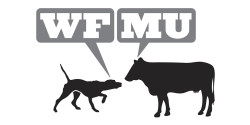Related: Matthew Lasar takes a look under the hood of Audience Engine.
Does America’s maverick freeform music station have what it takes to shake up non-profit journalism?
It’s no secret non-commercial news online is facing hardships. Funding and engagement remain persistent needs, with no guaranteed formulas for staying afloat in a competitive journalism field. The local and hyperlocal journalism startups that are on the presumably facing the biggest issues, however, are on radar of an eclectic music powerhouse.
In an era of playlists, algorithms and formatting, New York’s WFMU is one of the last freeform music radio stations left. Its mix of cultural relics, Creative Commons-licensed tracks and arts programming have made the radio station a curiosity in non-commercial radio. WFMU is the subject of a new documentary film, Sex and Broadcasting, as well as the center of chatter about what music programming is and used to be.
Enter Audience Engine. Aimed at making community based media sustainable, WFMU has sought to make its model rooted in fostering online communities available to public and community radio stations and others. The open-source options will be made available free for download and implementation later this year.
When Nieman reported last year on Audience Engine, WFMU was planning a variety of components, including tools for archiving and podcasting. Audience Engine’s first add-on, MVP, a crowdfunding effort that can be extended to fundraising management, is set to go live in October. A new organization, Congera, was founded under the auspices of WFMU to administer Audience Engine. While the source code for the software will be shared publicly so anyone can add and modify, Congera will offer consulting, managed hosting and other services for outlets that need it.
Audience Engine has applications that go beyond radio. In WFMU General Manager Ken Freedman’s assessment, Audience Engine could change journalism the way WFMU switched up online music listening.
“One of the things I am most excited about is seeing how the system we have developed applies to investigative journalism,” Freedman said. “I think it does. In order to explore that, we’re going to create news sites that are based on operating in a completely different way. But I think it’s a model for sustainable journalism.”
With 70 percent of the station’s revenue coming from online donations, WFMU’s fortunes have been paved by more than a decade of web engagement. Program-based chat rooms, interactive playlists, and commenting have been part of the WFMU radio ecosystem since the early 2000s. The result for WFMU has been a strong fan base garnered through its efforts.
Similarly, developer Ken Devine says, news sites must focus on creating renewed relationships with audiences. Such includes understanding donor habits and interests, establishing an understanding of content they like individually, and how the audience consumes content. Parsing the volume of data will require news organizations to think differently about how they relate to the audience. However, Devine contends, Audience Engine and other methods give news outlets a way to engage with audiences not unlike any other news organization does, but this time in an open-source fashion.
Freedman and Devine remarked Audience Engine’s environment has appeal to small- and medium-sized organizations, of which many independent news groups often fit in terms of categorization. Originally targeted as a frontend addition for Content Management Systems like Drupal, WordPress has become more a focus for Audience Engine. While such is the result of slowdowns in Drupal 8’s debut and the selection of WordPress for WFMU’s new website, the ubiquity of WordPress as a platform could be seen as a strategic positioning too.
WordPress has emerged as the web’s most popular CMS, with the New Yorker, BBC America, Quartz and Time among its most prominent sites using it. Freedman and Devine acknowledged, however, that their objective is to build widgets, add-ons and applications that are aimed at working seamlessly with a station’s existing tool set.
Freedman suggested a news website could use Audience Engine to build journalism around communities. For example, an environmental beat or an investigative reporter could have forums, crowdsourced content and reader interactivity. Money could come from twice yearly public radio-style fund drives, with reporters having individual fundraising goals.
Sound familiar? Various non-profit news sites have tried it, with mixed results. Freedman opines that previous efforts have been ineffective for several reasons.
“I really haven’t seen a journalism website approach crowdfunding the right way,” he said. “On the other hand, I have seen podcasts that have had incredible success, such as 99 Percent Invisible and Radiotopia. It’s of course a matter of how you do it, but it’s also a matter of how you cultivate your online community when you’re not fundraising.
“To use a horrible sports metaphor, champions are made in the offseason. It’s not enough to put a fundraising widget up when it’s time to get money. You have to be interacting with and cultivating your online audience all year ’round, so when it is donation time, your community will come through for you.”
Although Freedman concedes such notions will be tested with new technology and new models, Devine says the open-source nature of this effort serves a range of purposes for organizations by solving several issues. “Extending the power of any organization with constituents or listeners or whatever you may have, we have to get away from direct mail, phone banks, and from those modes of fundraising that are unfortunately still with us,” he said. ”
Audience Engine is expected to launch its crowfunding tool in the fall, with community and audio archiving and podcasting components to come in 2016.



